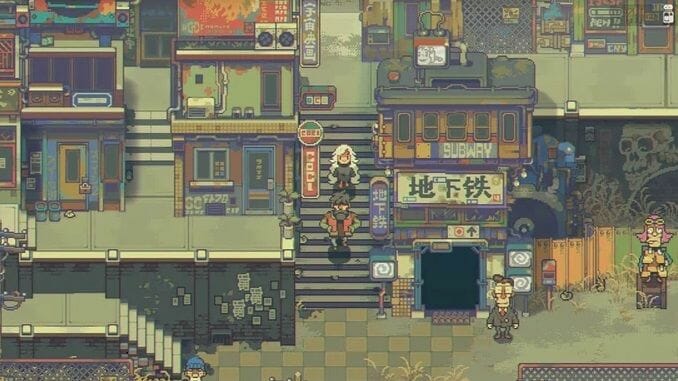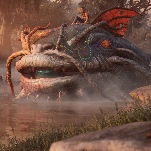Faint Beauty Glimmers Due Eastward: New Game Has Good Ideas, Mediocre Execution

Pixpil’s debut Eastward is a game I desperately want to like. In fact, I struggle to say I actively dislike it—there’s a lot to love in its richly detailed pixel world, and several moments that made me believe in the vision expressed across its overlong 20 or so hour runtime. Unfortunately, the game consistently roadblocks its more immediate themes and storytelling with overlong story segments and a terminally wooden protagonist, whose lack of emotion even in his body language leaves the game with a confused tone.
Though inspired by the Mother series as well as the 2D Legend of Zelda games, Eastward is very much its own experience. The game, at times, feels like an elevated version of a Game Boy Advance title, with its opulent pixel art, propulsive chiptune soundtrack, and sweet story. It’s one of the most beautiful games I’ve ever played, and is a constant visual delight. Every locale in the game feels staggeringly alive, with gestures towards a greater culture, way of life, and population communicated through idiosyncratic dialogue and minute design touches. The game is, above all else, concerned with life and how it manifests, which is one of its strongest aspects. It’s unafraid to move at an unhurried pace and tell very small stories.
The issues arise after these stories have come to pass. John, the primary playable character, is a silent protagonist of the strictest sort. Unlike characters such as, say, Link, we’re given little to infer about his personality. He carries a frying pan around and is an avid cook, but doesn’t seem to have any sort of discernable passion for the subject other than his dedication to cooking for Sam when she’s hungry. Despite the game’s lavish animations, he’s limited to mostly keeping his hands in his jacket pockets and scratching the back of his neck. He seems to possess a strange magnetism, as Sam is staunchly attached to him and multiple women in the game show a keen affection for him. While comical (what do people see in this corpse-like man?), it undermines the true story being told in Eastward, that of Sam’s.
There are times in Eastward where terrible things happen, and when beautiful things follow them, but there is no room or time to contend with any of it. The game goes out of its way to sideline Sam, even to make her forget that something awful has just happened, so as to return to the jolly tone just before these encounters. John shows little signs of trauma, care, or even memory—essentially, we’re left with a sense of whiplash where nothing is discussed, as one side of the conversation does not speak and the other is rendered as too young to understand or somehow unable to access the situation at hand.
-

-

-

-

-

-

-

-

-

-

-

-

-

-

-

-

-

-

-

-

-

-

-

-

-

-

-

-

-

-

-

-

-

-

-

-

-

-

-

-








































